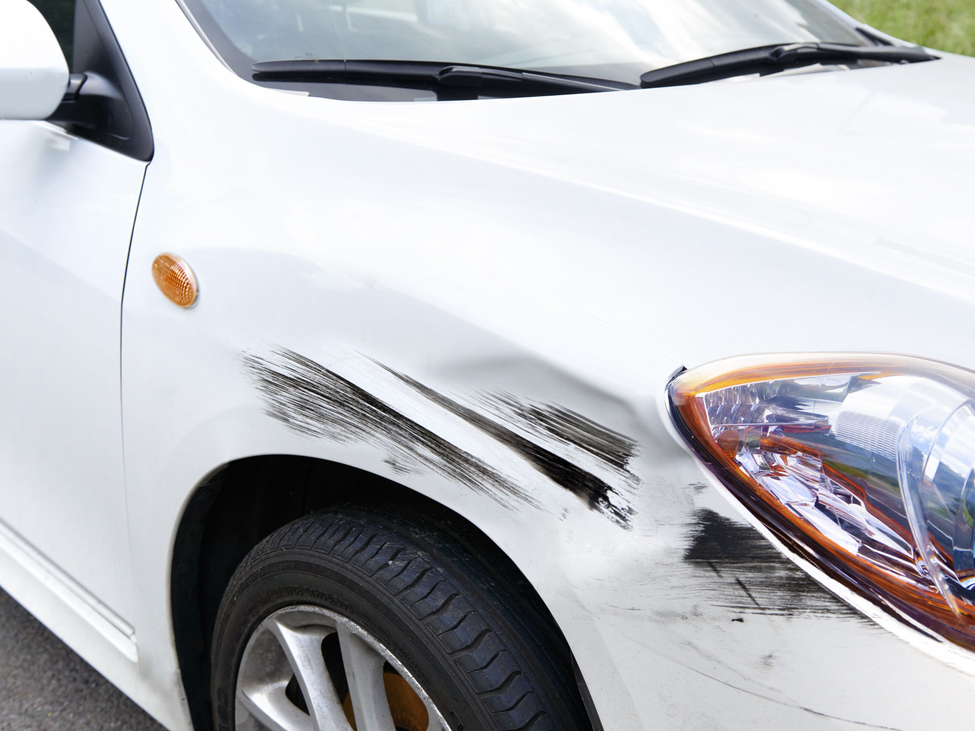What Is Collision Insurance?
Quotes are not available for risks located in AK, FL, HI and LA.
Travel protection is offered by our trusted partner, Travel Insured International, through InsuraMatch, LLC, a Travelers-owned insurance agency.
InsuraMatch
Pet insurance is offered by our trusted partner, PTZ Insurance Agency, Ltd through its ASPCA® Pet Health Insurance program via InsuraMatch, LLC, a Travelers-owned insurance agency.
InsuraMatch
Motorcycle insurance is offered by our trusted partner, Dairyland®, through InsuraMatch, LLC, a Travelers-owned insurance agency.
InsuraMatch
Flood insurance is offered by our trusted partner, Neptune Flood, through InsuraMatch, LLC, a Travelers-owned insurance agency.
InsuraMatch

Collision insurance
Collision insurance – or collision coverage – helps cover the cost of damage to your vehicle if you are in an accident with another vehicle or object, or if your vehicle rolls over.
Collision insurance explained
(DESCRIPTION)
A white umbrella. Text, What Is Collision Coverage? A search bar.
(SPEECH)
[MUSIC PLAYING]
Collision coverage. You might have heard of it, but what is it? Picture this, you're driving home from work.
(DESCRIPTION)
An animated framed photo of a car.
(SPEECH)
On the way, you skid off the road and hit a tree.
(DESCRIPTION)
An animated car runs into a tree. The car's front end crumples and the tree trunk cracks.
(SPEECH)
You're not injured. But your vehicle is damaged.
(DESCRIPTION)
An animated car with a cracked windshield and headlights.
(SPEECH)
That's what collision coverage is for.
(DESCRIPTION)
A street sign with two arrows pointing at each other. An animated image of a car rear ending another car.
(SPEECH)
Your coverage helps pay for damages to your vehicle in cases where your car hits another vehicle or object. Your car is hit by another car, your vehicle rolls over.
(DESCRIPTION)
An animated car on its roof.
(SPEECH)
And one more thing to keep in mind, collision coverage is usually required if your car is leased or financed.
(DESCRIPTION)
A stack of dollar bills and a contract with a car on it.
(SPEECH)
For more answers, go to travelers.com.
(DESCRIPTION)
Logo, Travelers, Text, travelers.com. Legal disclaimer: The information in the video is general in nature. Any description of coverage is necessarily simplified. Whether a particular loss is covered depends on the specific facts and the provisions, exclusions, and limits of the actual policy. Nothing in this video alters the terms or conditions of any of our policies. You should read the policy for a complete description of coverage. Coverage options, limits, discounts and deductibles are subject to state availability and to individuals meeting our underwriting criteria. Not all features available in all states. Insurance is underwritten by The Travelers Indemnity Company and its property causality affiliates, One Tower Square, Hartford, CT. In TX, Automobile insurance is offered by Travelers Texas MGA, Inc. and underwritten by Consumer County Mutual Company (CCM). CCM is not a Travelers Company. In CA: Auto insurance is underwritten by Travelers Commercial Insurance Company, Certificate of Authority #6519; State of Domicile CT and Travelers Property Casualty Insurance Company, Certificate of Authority #6521; State of Domicile: CT. In WA: Automobile Insurance is underwritten by The Standard Fire Insurance Company. Underwriting companies in CA and WA are located at One Tower Square, Hartford, CT 06183.
Copyright 2022 The Travelers Indemnity Company. All rights reserved. Travelers and the Travelers Umbrella logo are registered trademark of The Indemnity Company in the US and other countries.
What can collision insurance cover?
Collision coverage helps cover the costs to repair or replace your vehicle when it is involved in an accident with another car or object. For example, it can include coverage if:
-
You hit another car or an object like a highway median.
-
Another vehicle hits your car.
-
Your car rolls over or goes down an embankment.
A deductible applies to your collision coverage. When selecting your deductible, it’s important to consider what you can afford to pay should you need to file a claim.

What is comprehensive coverage?
Comprehensive coverage helps cover the cost of damage to your vehicle caused by non-collision-related events, such as:
-
Theft.
-
Storm damage, including hail, earthquake and flooding.
-
Damage from vandals, fire or a riot.
-
Damage from falling objects like a rock, branch or other debris.
-
Animal impact.
A deductible applies to your comprehensive coverage. Again, when selecting your deductible, carefully consider what you can afford to pay out of pocket if you need to file a claim.
Collision coverage vs. comprehensive coverage
Collision coverage
-
When you have an accident with another vehicle.
-
When your car hits an object like a fence or highway median.
Comprehensive coverage
-
When your vehicle strikes an animal.
-
When heavy winds, hail or flooding damages your automobile.
-
When a tree or electrical wire falls on your parked car.
-
When a rock chips or cracks your windshield.
-
When vandals cause damage.
Talk with a local independent agent or a Travelers representative about the advantages of collision car insurance or comprehensive coverage or to get a car insurance quote today.